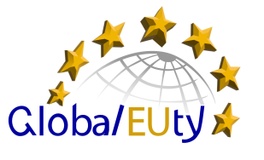Research Seminar | Preserving the ‘pecking order’ in Europe’s diplomatic hierarchies: comparing the place of Central Eastern Europeans in the EU and NATO
Karolina Pomorska (University of Leiden); Marianna Lovato (Jagiellonian University). Chair: Elisabeth Johansson-Nogués (IBEI)
Registration is required
Russia’s war of aggression made it abundantly clear that the world should have listened to Poland, the Baltics, and other Central and Eastern Europe (CEE) member states, who for years had been sounding the alarm about Russia’s expansionist ambitions. So why did the warnings from the CEEs fall on deaf ears? One of the principles supposedly underpinning multilateral cooperation is that of sovereign equality: international organizations (IOs) should act as great levelers, where every country’s voice counts equally. In practice, however, some voices seem to count more than others and some countries appear to be more equal than others. Why do institutions designed to ensure equal representation end up nonetheless being structured by social hierarchies? How are these hierarchies challenged, changed and reproduced? This paper sets out to investigate how informal diplomatic hierarchies in multilateral IOs work and the extent to which they might lead to suboptimal outcomes in international cooperation. We focus on the role and standing of the CEEs in the European Union and NATO, before and after 2022 Russia’s war of aggression, asking whether and how the conflict might have (re)shaped the diplomatic pecking order in both organizations. We argue that exogenous shocks and preconceptions that member states hold about each other play a key role for the recognition of diplomats’ competence claims. Depending on whose competence claims are recognized, dismissed or outright reprimanded, existing hierarchies within the organization will either be reinforced or challenged.
Research Seminar organised together with the Jean Monnet Chair in Global Actor EU: The International Relations of the European Union in a Competitive and Fractured World (GLOBALEUTY)


